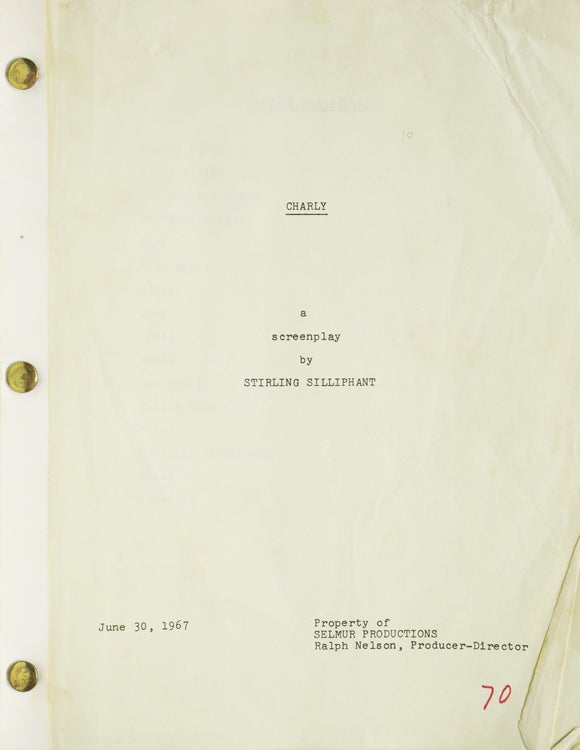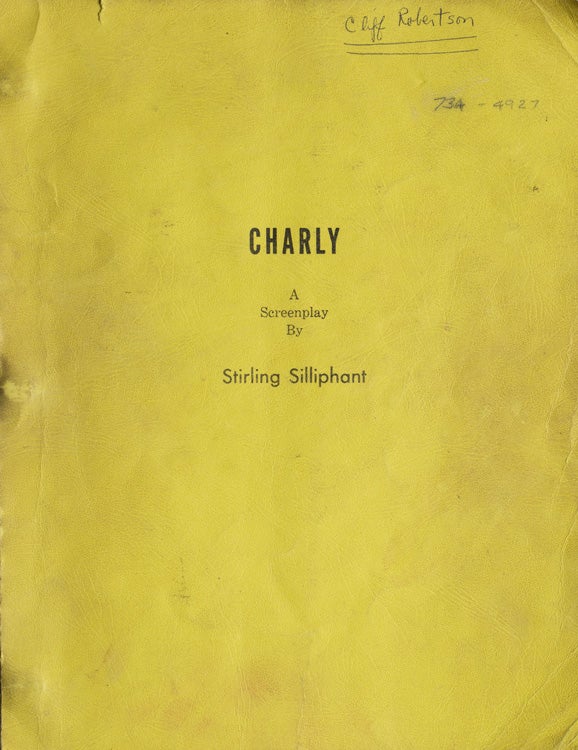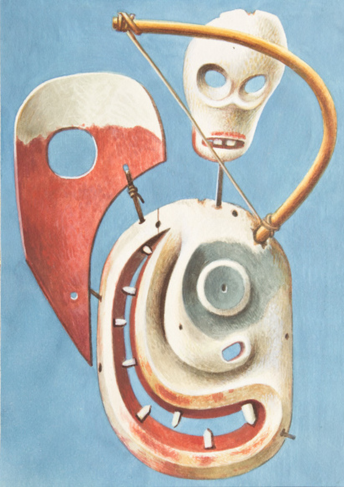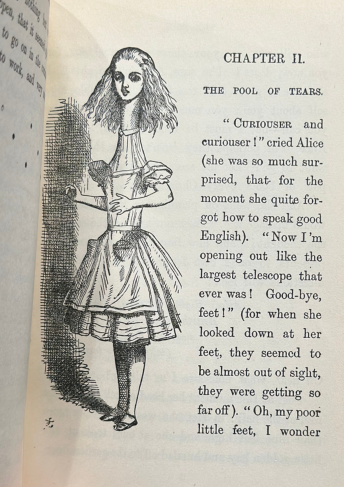A Work in Progress
Charly A Screenplay.
Np: Property of Selmur Productions [Alert 8014 W. 3rd St.], 30 June [to 21 September], 1967.
Price: $6,500.00
About the item
Screenplay: [2], 126 leaves plus lettered inserts. Manuscript: 88 leaves, withphoto-duplicated typescript transcription. 3 vols. 4to. A Work in Progress. Mimeographed typescript, printed on rectos only of pale green stock, with a multitude of dated revises on salmon stock, numerous changes in ink. Bradbound in printed textured wrappers. Wrappers moderately hand soiled, ink name ("Cliff Robertson") and phone number on upper wrapper, extensive manuscript revisions in the text, otherwise a good copy. With folder of additional material and a vinyl folder of publicity materials. Provenance: Cliff Robertson Estate. Water Milll, Long Island.
Item #258253
“Charly is unable to answer — but it is obvious that somewhere in his simple heart the answer is locked.”
A superb association copy of this unspecified, but quite early, draft of Silliphant's adaptation to film of the novel, FLOWERS FOR ALGERNON, by Daniel Keyes.
This copy, as well as the associated material detailed further below, originated from the estate of Cliff Robertson, the Oscar-winning star of the September 1968 release. Robertson's association with the property extended back to its first treatment in dramatic form in 1961, as "The Two Worlds of Charlie Gordon," a television production of the United States Steel Hour. Robertson starred in that adaptation and he shortly thereafter acquired the film rights. Stirling Silliphant was engaged to write the screenplay, bringing to the project substantial credentials as a writer for film and television - he won an Oscar for his script for IN THE HEAT OF THE NIGHT, his film project just preceding this work, and for this script he won a Golden Globe, and earned a nomination for a Hugo Award.
The present draft of the script, even with the revises, reflects a substantially different vision of the film when compared with the current version available for viewing. Substantial elements in the present draft were omitted and others expanded in the final film. Supplementing the bound script are seven further leaves of dated revises (from October and November) mimeographed on salmon, yellow and goldenrod stock, the gathering for 20 November designated as for "Cliff Robertson" in an unknown hand. The ownership signature and revisions and notes in the bound script dot not appear to be in Robertson's hand, and perhaps may be by Silliphant or Robertson's assistant. However, an additional file of 88 leaves of autograph manuscript, in ink (chiefly on rectos only) compares quite favorably with Robertson's hand, and while not a complete draft of the script, consists of revised versions of scenes, added dialogue, commentary and rewrites, a few aspects of which approach more closely sequences in the released film, but which still, in their totality, represent a script still in process and which will yet undergo considerable revision. These leaves are accompanied by a photo-duplicated typescript transcription. A final accompaniment to the archive is a quarto folder containing ten publicity photos of Robertson in the UK attendant to the film's UK opening (one captioned on the verso by Robertson, the others with printed press captions) and a group of press clippings of London reviews, several of them mounted and captioned with circulation numbers.
As a short story, "Flowers for Algernon" first appeared in the April 1959 issue of F&SF, and was the recipient of a Hugo Award. The expanded novel was published in 1966, and was a co-recipient of the Nebula Award. The novel soon became a staple for school curricula, in spite of numerous challenges by self-appointed censors. This 1968 film version, was directed by Ralph Nelson, and co-starred Claire Bloom, and the novel has served as the basis for a number of subsequent dramatizations.




